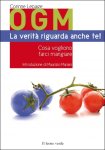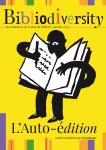Publishing countries : Burkina Faso
Co-publishing projects, which are at the centre of the Alliance’s activities and reflexions since its beginnings, promote a better diffusion of works and ideas, while providing an opportunity for cost sharing between publishers. These professional partnerships, based on trust and collective work methods, also represent a mutual exchange of knowledge that promotes an increased professionalization of publishers.
After 10 years of practices and experiences, a report is in order: how many solidarity co-publishing projects were launched in a decade, and in how many countries? What are the financial implications of these projects?
To punctuate this workshop with concrete examples, the “Terres solidaires” collection (pan-African solidarity co-publishing) serves as a pilot case study, but other projects developed in or outside of the Alliance will feed into the discussion. Participants will reflect on ways of developing new partnerships while strengthening these projects’ collective dimension. It will also propose some strategies to facilitate cooperation with regards to copyrights transfers (North-South, and mainly South-North and South-South) and will consider the digital data.
From these exchanges, participants will develop a “good editorial practices” guide. This guide could lead to the drafting of a charter that would accompany the Alliance’s Fair Trade Book logo.
To deepen discussions and enable practical exchanges between language networks, Guido INDIJ (Director of la marca editora publishing in Argentina) will discuss the reflections and projects led in the Spanish-language network over the years in terms of publishing partnerships.
Finally, and since most co-publishing and translation projects come from encounter between people, a considerable amount of time will be dedicated to a project fair. This “mini Frankfurt” will provide the opportunity for publishers to propose works for copyrights transfers or co-publishing to their colleagues. These projects could be supported (logistically, legally or financially) by the Alliance in the near future.
The publishers’ presence in Ouagadougou will provide an opportunity to facilitate, in partnership with the Joseph Ki-Zerbo Foundation and Sankofa & Gurli Publishers, the launch of the last solidarity co-publishing project entitled “À quand l’Afrique ? Joseph KI-ZERBO’s interview with René HOLENSTEIN”, a launch that will close the workshop on June 17 2013.
This workshop is supported by the “Organisation internationale de la Francophonie” and the “Centre national du livre”.






















